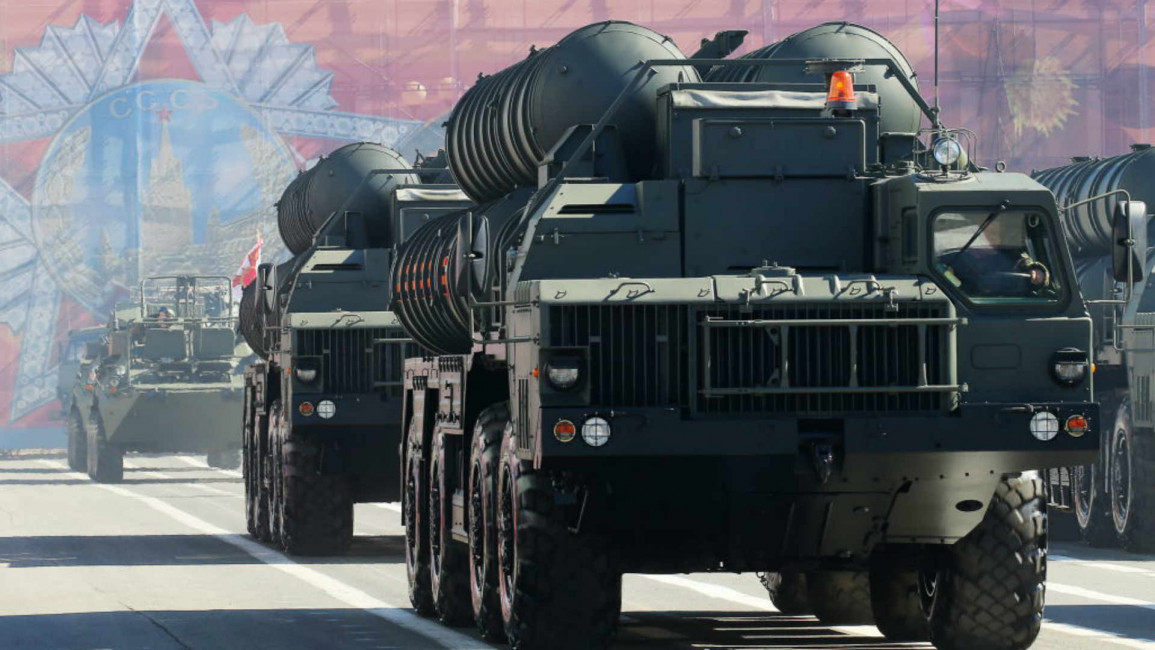
Hypocritical Saudi Arabia opposes Qatar's Russian missile purchase
Qatar is going ahead with its plans to buy S-400s over Saudi Arabia's objection. Riyadh, which has levelled an air, ground and sea blockade against Qatar for more than a year now, has even suggested it is ready to take military action against Doha to destroy the missiles if they are delivered. In spite of this threat Moscow has affirmed it will still supply the missiles.
In June, Riyadh sought to convince French President Emmanuel Macron to intervene diplomatically and convince Doha not to buy the missiles, claiming the purchase would destabilise the region.
Qatar's air defence capabilities at present are dwarfed by the Saudis and the other regional powers blockading the tiny country. While Doha has made several deals with the Americans and Europeans for more advanced fighter jets to replace its 12 Dassault Mirage 2000s which currently defend Qatar's airspace, the Saudis possess at least 100 far more advanced aircraft.
Furthermore, Riyadh itself is seeking to buy the very same Russian missile system to bolster its military forces, while simultaneously seeking to stop Doha from doing so. Saudi possession of the system could enable it to shoot down Qatari aircraft inside Qatar's own airspace. For this reason it is logical that Doha wants such a system to protect its own airspace and deter any attacks.
Last year, the Saudi state-owned press outlet Al-Arabiya released a sordid video depicting its ability to shoot down Qatari civilian airliners entering its airspace. The Gulf region has quite a depressing history of civilian airliners being threatened and destroyed, particularly in the 1980s.
 |
Riyadh is seeking to buy the very same Russian missile system to bolster its military forces, while simultaneously seeking to stop Doha from doing so |  |
At that time, Iraq threatened to shoot down civilian airliners operating in Iranian airspace during the savage eight-year war it fought against the country.
But it was a US ship, the USS Vincennes destroyer, which did infamously shoot down Iran Air Flight 655 on July 3, 1988, killing all 290 people aboard during skirmishes with Iran's Islamic Revolutionary Guards (IRGC) in the Gulf.
Given this depraved history and Riyadh's sinister little animated video, its own push to purchase S-400s should be questioned and scrutinised.
Twitter Post
|
The Republic of Turkey is also pushing ahead, despite US and European objections, to buy S-400 air defence missile batteries. The decision follows almost half a decade of Turkish efforts to acquire such a system.
In 2013 Turkey initially sought to buy Chinese-made FD-2000 missiles, basically a copy of the S-400's older brother, the S-300 (a generation behind the S-400 in terms of capability). This led to American and European defence firms warning their Turkish counterparts that: "If Turkey buys missiles from China, our partnerships in certain fields will be over."
NATO also argues that Russian systems will be incompatible with Western systems, something Ankara readily acknowledges. Turkey argues that buying the famed Patriot missiles from the United States would not suffice since Washington will not transfer the system's technology along with the missiles. Ankara sees procuring an advanced missile as an opportunity to garner the cutting edge technology that could enable it to make its own domestically built systems in the future.
However, the Russians insist that supplying the Turks with S-400s will not enable them to replicate the technology nor inadvertently give NATO a good look at what is arguably Moscow's most formidable air defence missile system.
 |
It is logical that Doha wants such a system to protect its own airspace and deter any attacks |  |
Russia's state-run Sputnik News even ran an article with the rather amusing title 'Taking It Apart Won't Help': Why S-400's Secrets Safe Despite Sale to Turkey. The article argues, among other things, that the version of the S-400 Turkey is acquiring is less sophisticated than the ones in Russia's own arsenal. Regardless of this, Ankara will, for $2.5 billion, still acquire a variant of the S-400 that will "retain most of its combat capability" and remains "one of the most modern defensive systems in the world, capable of closing its airspace under a dependable umbrella".
Twitter Post
|
Turkish President Recep Tayyip Erdogan argues that the Western powers are being hypocritical in opposing Turkey's acquisition of the system. Many in Washington want sanctions slapped on Ankara for buying the system and also want to prevent it from taking delivery of the 100 advanced American-made F-35 Lightning II fifth-generation fighter jets it ordered.
"Greece, which is also a NATO member, has been using S-300 for years, no one says anything," Erdogan has pointed out, saying Turkey is being unfairly singled out.
However, it was because of Turkey that Greece ultimately ended up with those missiles. From January 1997 until December 1998, Turkey threatened war with Greek Cyprus over its own bid to acquire Russian missiles. At that time Cyprus sought to buy the advanced Russian missiles to undercut Turkey's de-facto air superiority over the partitioned island nation.
Ankara's threats to wage war over the missiles sparked a political crisis in Nicosia and led to a compromise deal with Athens to stave off war. Greece took delivery of the missiles destined for Cyprus and Turkey backed down.
Unlike Cyprus then, Turkey maintains complete control over its airspace and, as its infamous downing of a Russian bomber in November 2015 demonstrated, can be a formidable foe against any outsider.
Paul Iddon is a freelance journalist based in Erbil, Iraqi Kurdistan, who writes about Middle East affairs.
Follow him on Twitter: @pauliddon
Opinions expressed in this article remain those of the author and do not necessarily represent those of The New Arab, its editorial board or staff.




